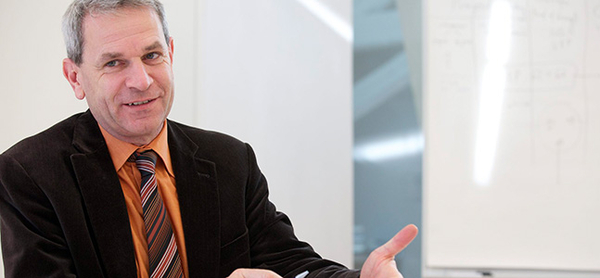“Science is able to instigate change”

For ten years, Daniel Höchli was Director of the Administrative Offices of the Swiss National Science Foundation. Despite signs of crisis he remains upbeat about the future of science.
Mr Höchli, you can look back on ten successful years: the SNSF has grown considerably. Which developments are you particularly proud of?
An industry representative in the Foundation Council once told me that the Administrative Offices were managed like a good company. They have become more modern and more efficient during my time as director – that’s something I am proud of. The positive development in funding policies is primarily the achievement of the Presiding Board of the Research Council.
How did you convince politicians to invest in science – which is after all an investment without any guarantee of success?
External factors play an important role: the excellent Swiss universities create a positive environment and most private sector companies understand the importance of basic research. The SNSF has been able to show that it manages public money conscientiously and penalises fraudulent behaviour. And it has signalled understanding when not all of its needs were met. Research in Switzerland is important, but it is not the only cause deserving support.
The years of plenty in research funding are over. How will this affect young researchers?
We have to reconsider our plans: we will not be able to introduce all the measure that we proposed in the multi-year programme. But young researchers continue to be a priority. We are modifying our funding schemes so that talented young researchers can work independently at an earlier stage in their career.
The science system is in crisis: quantity is often more important than quality. Do you agree with this assessment?
To call it a crisis is exaggerated. But it is obvious that the pressure to publish at a high rate creates the wrong incentives. Researchers in the life sciences, in particular, produce too many results that others can’t reproduce – that is problematic even if we accept that it is difficult to reproduce results obtained in experiments on living organisms. By signing the DORA declaration, the SNSF has signalled a change of direction. I find it encouraging that scientists themselves are pushing the debate. They are the ones who can instigate change.
If you could magically change something in Swiss research, what would it be?
I would improve the working conditions of young researchers. We need better career advice services, progress evaluations and tenure track professorships. It cannot be right if researchers in their mid-40s are suddenly unwanted or frustrated and in search of a new career.